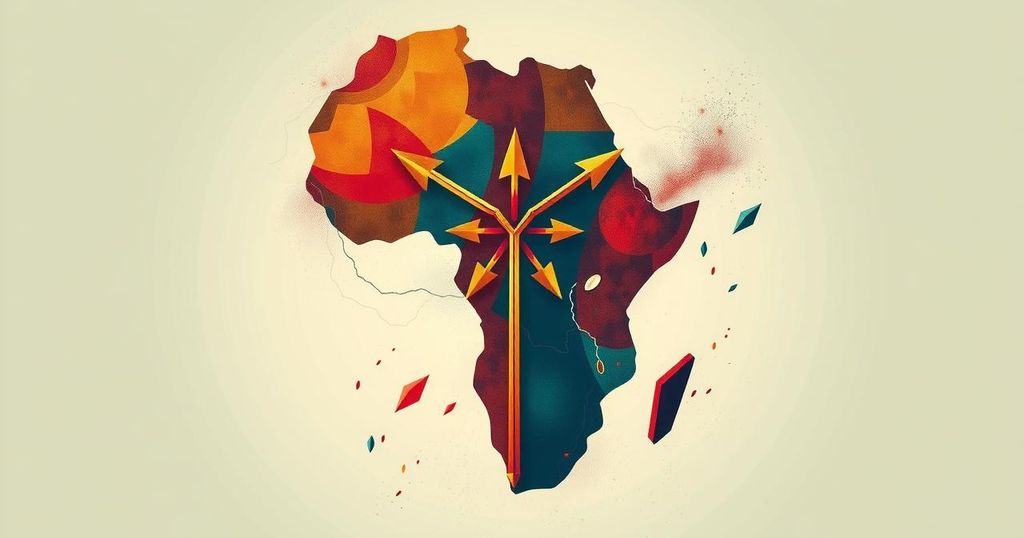Diplomatic relations between South Africa and Rwanda have worsened after accusations that Rwandan-backed M23 rebels killed South African peacekeepers in DRC. South Africa warned of a declaration of war if attacks continued, while Rwanda accused South Africa of military aggression. The situation raises concerns about the future of South African troops engaged in peacekeeping efforts in a volatile region.
Relations between South Africa and Rwanda have deteriorated following accusations from President Cyril Ramaphosa that the Rwandan-backed M23 rebel group is responsible for the deaths of South African peacekeepers in the Democratic Republic of Congo (DRC). As the M23 captured significant territory, including Goma, South Africa warned that any further attacks on its troops would be regarded as a declaration of war. Rwandan President Paul Kagame countered these claims, accusing South Africa of engaging in aggressive combat operations on behalf of the DRC government.
The backdrop of this escalating conflict includes an already tense relationship between South Africa and Rwanda. Historical tensions, such as the expulsion of diplomats in 2014 after an attack on an exiled dissident, and the worsening military situation in eastern DRC have contributed to the current diplomatic fallout. South Africa’s involvement in DRC peacekeeping operations has been ongoing since the 1990s, influenced by both regional stability and economic interests in mineral-rich eastern DRC.
The ongoing tensions between South Africa and Rwanda highlight the precarious situation in eastern DRC, where military and diplomatic maneuvers have significant implications for regional stability. With casualties among South African peacekeepers rising, the response from both governments will be crucial in shaping future engagements in the conflict-ridden area. South Africa faces a challenging decision regarding its continued military presence, caught between national interests and the threats faced by its troops.
Original Source: www.bbc.co.uk






